Iranian Regime Insider Slanders Mahsa Amini
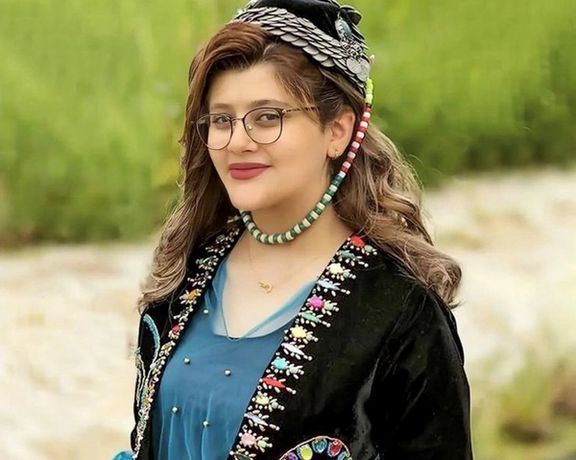
Iranian conservative Asadollah Badamchian claimed without evidence Mahsa Amini, who died in morality police custody, supported the a Kurdish militant group.

Iranian conservative Asadollah Badamchian claimed without evidence Mahsa Amini, who died in morality police custody, supported the a Kurdish militant group.
Badamchian, who is a long-time regime insider, accused the symbol of the antiregime movement of being a part of the Kurdish Komala Party three weeks before her death anniversary, expected to be a tumultuous period in Iran. The Islamic Republic designates Kurdish armed groups operating in western provinces of Iran as either "terrorist groups" or "anti-revolutionary." These groups, however, assert that their armed campaigns are aimed at "defending the rights of the Kurds."
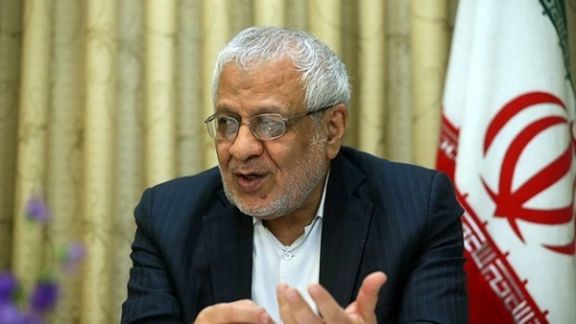
Badamchian in an interview with ILNA alleged that there exists a photograph depicting Mahsa Amini engaged in dancing with the Komala Party.
Badamchian tried to defend Amini's arrest by the morality policy last September, saying that "she was inappropriately dressed." During this process, Amini became visibly agitated, subsequently collapsing and passing out. Subsequent to these events, an organized movement, both domestically and internationally, emerged involving media outlets such as BBC, CNN, Manoto TV, and Zionists, alleging that Mahsa Amini had been fatally harmed by the morality police.”
Mahsa Amini received fatal head injuries during the brief period she was under arrest.
Badamchian, a hardline principlist politician with two parliamentary terms to his name, and a founding member of the Islamic Coalition Party, even claimed that the regime exhibited some “leniency” toward Mahsa Amini.
Amidst the fallout from Mahsa Amini's tragic incident, a series of protests erupted, resulting in the loss of over 500 lives at the hands of the regime's agents. Approximately 22,000 arrests were made, with seven executions and additional death sentences on dubious charges casting a shadow over the broader discourse.
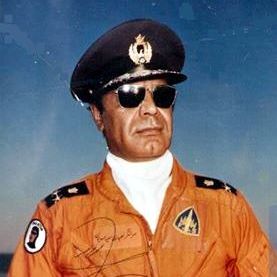
Iran's Judiciary has called on the US government to pay $330 million in compensation for its alleged role in the Nojeh coup plot against Iran's regime in July 1980.
Widely referred to as the Nojeh Coup, the Saving Iran's Great Uprising was a scheme aimed at toppling the recently formed clerical regime Iran, along with its leadership under President Abolhassan Banisadr and Ruhollah Khomeini.
The plot, which was never executed, involved officers of Iran's royal army and civilians opposed to the Islamic Republic. This is the first time that the Iranian regime is accusing the United States of involvement in the plot.
According to the court verdict, the US government has been sentenced to pay $30 million for material and moral damages to the plaintiffs and $300 million for punitive damages.
The judiciary media center announced Saturday that “an open court session was held last month to address the claims of the families of the victims of the coup incident. The session took place at a judicial complex in Tehran, with the presence of survivors and those affected by the incident.”
The coup plot involved personnel from infantry, air force, army, and secret service of the Shah. It was largely foiled by the arrest of numerous officers on July 9-10, 1980, at Nojeh Air Base near Hamedan, west of Iran.
The demand from the Iranian regime comes in the wake of a deal with the Biden administration earlier this month to unblock $6 billion of Iran's frozen funds in exchange for five US citizens held hostage by Iran.
While Khomeini ordered the execution of those involved, Banisadr employed legal tactics to postpone the executions. With the Iraq invasion, many were released under the pledge of returning to duty. Nonetheless, 144 participants were executed, and 2,000–4,000 military personnel were dismissed.
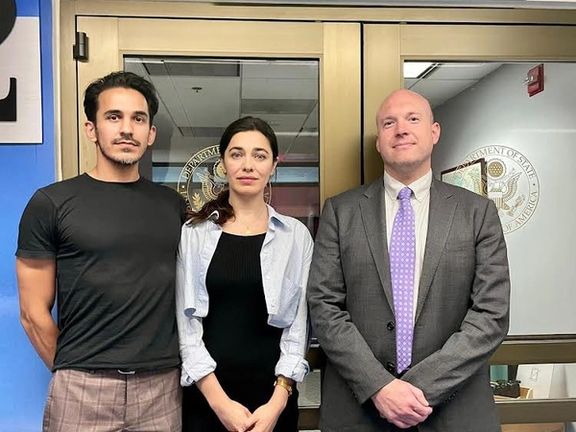
US envoy for Iran met Friday with the family of US permanent resident Jamshid Sharmahd, who was left out of a prisoner release deal with Tehran earlier this month.
Sharmahd, a German Iranian citizen who was kidnapped in Dubai by Iranian agents in 2020 and taken to Iran possibly through Oman, was sentenced to death in February in Iran after being convicted of heading a pro-monarchist group accused of a deadly 2008 bombing.
Deputy Special Envoy Abram Paley posted a picture of himself with Sharmahd's son Shayan and daughter Gazelle on the social media site X, formerly known as Twitter.
"I welcomed the opportunity to meet with Jamshid Sharmahd’s family today. He should have never been detained in Iran, and we hope to see the day he is reunited with his loved ones," Paley wrote.
Paley has taken over the position of US envoy for Iran after Rob Malley who was appointed to the post at the beginning of the Biden administration was put on unpaid leave in June after an apparent violation of security protocols. The Federal Bureau of Investigation is handling his case.
Responding to the post, Gazelle Sharmahd said she had told Paley she needed "actions" and that her father must be part of whatever is agreed to free US nationals.
"We will continue to urge the Biden Administration to work with stakeholders to #LeaveNoOneBehind or stop negotiations with my dad’s kidnappers," Sharmahd said on X.
Gazelle and Shayan have been camping outside the State Department for over a week, demanding a meeting with US officials to press their father’s case. Diaspora Iranians have expressed a wave of support on social media for the Shahmahd family and many Iranian Americans have visited the daughter and son outside the State Department. Iran’s exiled Prince Reza Pahlavi visited them last week and voiced his support for their case.
A deal to free five US citizens taken hostage by Iran in exchange for freeing $6 billion of Iranian funds frozen in South Korea, has led to intense controversy, especially that two more prisoners were not included in the deal. Former American and Australian hostages in Iran have criticized the Biden administrations for what is seen as essentially a ransom payment to Iran, arguing that it will further encourage hostage taking by bad actors.
Since his imprisonment, human rights organizations have warned of 68-year-old Sharmahd’s deteriorating health. He has been held in solitary confinement and was denied an independent attorney and fair legal procedures during his trial. In February, Iran's judiciary sentenced him to death.
Iran's intelligence ministry at the time when Shahrmahd was kidnapped and taken to Iran, described him as "the ringleader of the terrorist Tondar group, who directed armed and terrorist acts in Iran from America."
Based in Los Angeles, the little-known Kingdom Assembly of Iran, or Tondar, says it seeks to restore the Iranian monarchy that was overthrown by the 1979 Islamic revolution. It runs pro-Iranian opposition radio and television stations abroad.
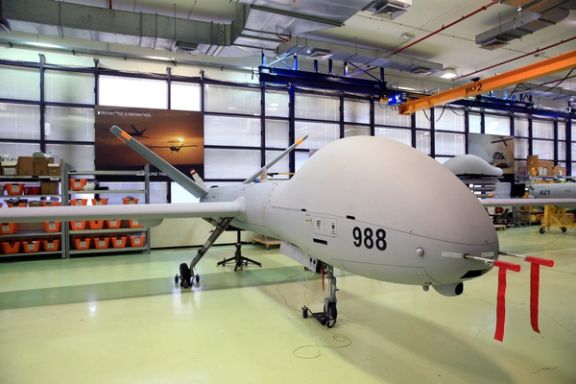
Iranian media have announced the commencement of an electronic warfare exercise held within the country's central regions to counter drone attacks.
According to a report by local media on Friday, the joint electronic warfare exercise was initiated by the Islamic Republic Army. The exercise involves practical evaluation and training of various stationary, mobile, ground-based, and aerial electronic warfare systems.
Units from the Navy, Ground Forces, Air Force, as well as air defense participated in this exercise, which took place primarily in a desert region.
The IRIB news agency wrote, "Electronic defense systems stationed in the exercise area successfully executed non-lethal defense operations and electronic protection against unmanned aerial vehicles and small attacking drones."
A day before this exercise, Habibollah Sayyari, the Deputy Coordinator of the Army, stated, "Given the importance of electronic warfare in today's battles and its significant role in future conflicts, special attention to electronic warfare technologies… have been on the agenda of the Islamic Republic of Iran Army in recent years."
This exercise takes place at a time when Iran's nuclear sites located in central areas of the country have been targeted by drone attacks in the past years.
In February, The Wall Street Journal, in an exclusive report quoting American officials and individuals, attributed a drone attack on a defense ministry complex in Esfahan to Israel.
While the Islamic Republic has been supplying drones to Russia for use in attacks on Ukraine, the spokesperson of the Ukrainian Air Force also declared at that time that the drone attack on military installations in Esfahan was a consequence of the policies of the Islamic Republic.
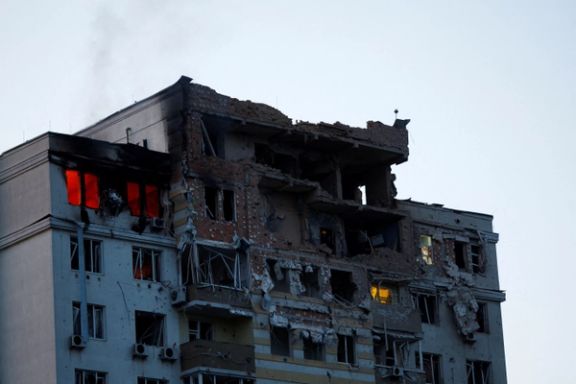
Russia's military cooperation with Iran will not succumb to geopolitical pressure, Russian Deputy Foreign Minister Sergei Ryabkov said, referring to pressure from the United States.
Washington has been publicly demanding that Iran should stop providing military drones to Russia and scale down its bilateral military cooperation.
"There are no changes, and cooperation with Iran will continue," Ryabkov said, according to a report on Saturday from Russian state news agency RIA. "We are independent states and do not succumb to the dictates of the United States and its satellites."
The US is pressing Iran to stop selling the armed drones, which Russia is using in the war in Ukraine, the Financial Times reported earlier this month, citing an Iranian official and another person familiar with the talks.
Russia began using the Iranian-made Shahed drones to attack deep inside Ukraine last year. The so-called kamikaze unmanned drones do not need a runway to launch and explode on impact. Ukraine has learned to shoot down most of the unmanned aerial vehicles but Russia has been using them in conjunction with ballistic and cruise missiles to overwhelm Ukraine’s air defenses.
Iran has acknowledged sending drones to Russia but said in the past they were sent before Russia's February 2022 invasion in Ukraine. Moscow has denied its forces used Iranian drones in Ukraine.
However, Russia has used hundreds of the Iranian drones and Ukraine has reported regular deliveries reaching Russia.
A White House official said in June that Iran had transferred several hundred drones to Russia since August 2022.
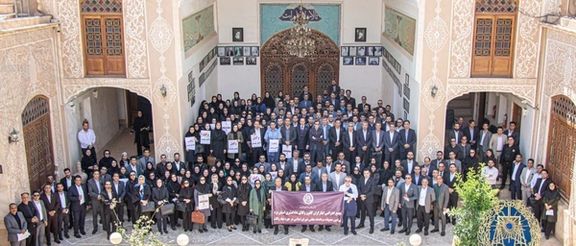
Iranian lawyers have staged demonstrations to protest a recent parliamentary decision to strip the limited independence of the country’s bar associations.
The rallies were held outside the provincial offices of the bar associations in several provinces this week. Expressing their objections, attorneys at these protests described the measure as "contrary to the fundamental rights of the people and in violation of the independence of the Bar Association.”
They also urged the Guardian Council – a constitutional 12-member council that wields veto power over legislation passed by the parliament -- to annul the decision. They also called on the heads of the three branches of Iran’s government – administration, judiciary and legislative – to review the newly approved resolution.
On August 21, lawmakers passed a new bill that compels bar associations to comply with the decisions of the Regulatory Board of the Ministry of Economy, practically turning them into government subsidiaries. The new law also prohibits annulment of the Regulatory Board’s decisions in the Administrative Justice Court.
The resolution also grants authority to the Ministry of Economy for issuing, extending, and revoking attorney licenses. Outraged over the measure, Iranian lawyers say the move runs contrary to international legal norms and existing regulations.
The parliament’s resolution also tasks the Economy Ministry to draft new monitoring regulations to assess the performance of lawyers in collaboration with the Ministry of Justice and the Judiciary. Another clause of the resolution mandates the ministry to establish a "system for assessing the commitment and effectiveness of lawyers by clients" and publish the "results of each lawyer's assessment by previous clients" to the public.
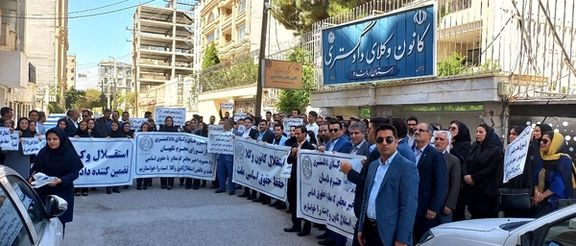
The resolution coincided with intensified measures by the regime to discourage possible protests ahead of the anniversary of last year’s nationwide uprising, ignited by the death of Mahsa Amini in police custody. More than 500 protesters were killed and over 22,000 were arrested during the regime’s crackdown. Although protesters were given harsh sentences and were denied legal representation and due process in most cases, independent lawyers were the only hope of the prisoners, making their voices heard in Iran and abroad.
Bar associations, as a long-standing professional and legal institution in Iran, has consistently encountered pressures from governmental bodies and the judiciary, gradually losing its autonomy and authority through the enactment of various laws.
In June 2021, President Ebrahims Raisi introduced another set of regulations to restrict the bar associations in his last weeks as chief justice. In May 2020, over 12,000 legal practitioners in a letter to Raisi protested another set of regulations as "devastating” for bar associations and distorting “the procedures of fair legal investigations."
After the establishment of the Islamic Republic the existing Bar Association was closed down and many top attorneys were persecuted. In 1997, parliament passed the Law on Conditions for Lawyerhood Licenses, allowing the reopening of bar associations in all provinces with members required to profess belief and “practical commitment" to Islam, Zoroastrianism, Judaism or Christianity.
Dadban, a group of pro-bono lawyers in Iran defending political prisoners and rights activists, reported Thursday several cases of “increasing pressure on lawyers ahead of the first anniversary of Mahsa Amini's murder and the beginning of the Women, Life, Freedom movement.” It said the intelligence organization of the Judiciary has summoned several lawyers in the past few days and seeks to revoke the licenses of many others. Iran has several parallel intelligence organizations.
In addition to the ongoing protest rallies, an online campaign against the resolution has garnered about 20,000 signatures in less than 48 hours after its launch, calling for amendments to “the new regulations that contradict the principles of the Constitution and Islamic Sharia law.”
Ali Mandanipour, the former head of the National Union of Iranian Bar Associations – which includes the Central Bar Association (Tehran Bar Association) as well as 15 regional bar associations – issued an open letter to the heads of government branches, calling the new resolution as the final nail in the coffin of bar associations in Iran.






